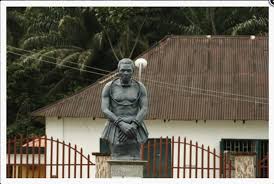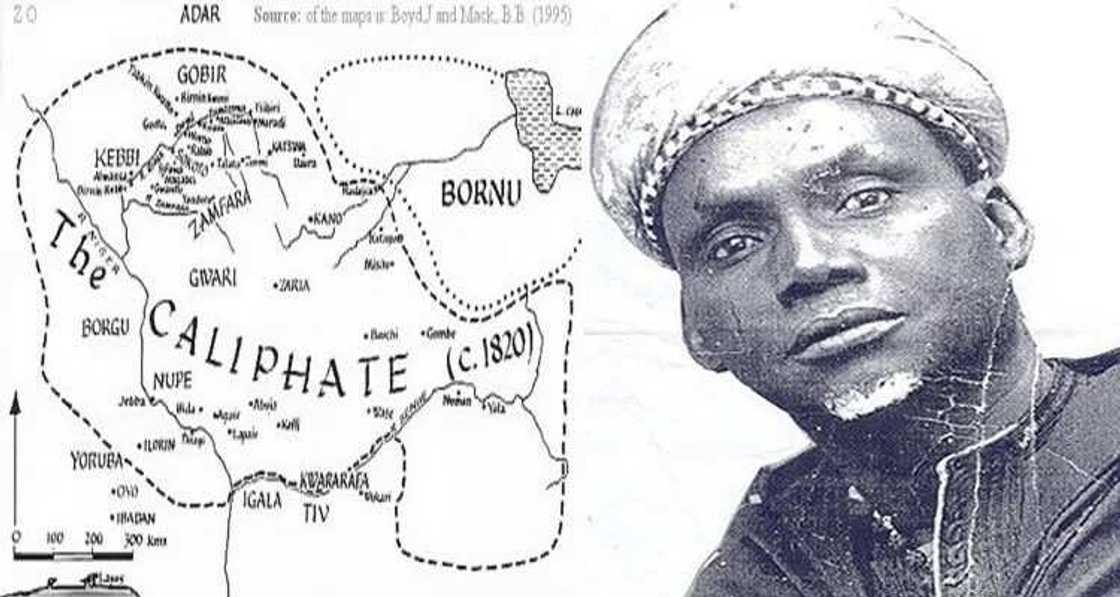
Nana Olomu of Itsekiri: The Last Governor of the Benin River
Nana Olomu, the renowned 19th-century Itsekiri chief and influential merchant, played a pivotal role in the history of the Niger Delta and Nigeria’s interactions with British colonial forces. Known as the last governor of the Benin River, he controlled trade routes and managed a powerful business empire in the Niger Delta. His resistance to British control highlights the complex dynamics of commerce, power, and resistance in pre-colonial Nigeria.
Early Life and Rise to Power
Nana Olomu was born in the 1850s into the powerful Itsekiri family of Ebrohimi, located in what is now Delta State, Nigeria. As a young man, he displayed remarkable leadership qualities and a keen understanding of trade and diplomacy. Nana inherited leadership from his father, Chief Olomu, who had established the family’s wealth and influence through trade with European merchants.
By the late 19th century, Nana had taken over his father’s trading networks and built a strong business empire in the Niger Delta. He was appointed governor of the Benin River by the British due to his influence, control over regional trade, and cooperative stance—at least initially—toward foreign traders. This position enabled him to exert control over local resources, particularly the trade in palm oil, which was in high demand in Europe.
Control of the Palm Oil Trade
As governor, Nana controlled the vital palm oil trade routes along the Benin River and the wider Niger Delta region. His strong business acumen and monopoly over resources made him one of the most powerful figures in the Niger Delta. Nana’s dominance allowed him to set the terms of trade, which included dictating prices to British traders and maintaining economic stability in the region.
Nana’s leadership was instrumental in organizing trade for his people while preventing exploitation by European merchants. He enforced policies that protected Itsekiri economic interests, benefiting local communities through his efforts to maintain autonomy and control over resources.
Resistance to British Colonial Expansion
Nana’s success and assertive stance in controlling trade and regional politics soon became a source of conflict with British colonial authorities. As British influence in Nigeria increased during the late 19th century, tensions grew between Nana and the British traders who sought greater control over trade and resources in the Niger Delta.
In 1894, after disputes escalated over trade practices and resistance to British intervention, the British accused Nana of obstructing free trade and declared war on him. British forces launched a military campaign, known as the Nana War, to remove him from power. Despite putting up a strong defense, Nana’s forces were ultimately outmatched, and he was captured by the British.
Exile and Legacy
Following his defeat, Nana Olomu was exiled to the Gold Coast (modern-day Ghana) in 1894. This marked the end of his reign and his control over the Itsekiri people and the Benin River region. However, his legacy as a determined leader who resisted foreign domination endures in Nigerian history. His exile symbolized the end of an era of Niger Delta leaders who had successfully managed trade on their terms.
In 1906, Nana was allowed to return to Nigeria, where he lived until his death in 1916. His story serves as a reminder of the challenges faced by African leaders in maintaining autonomy and resisting colonial pressures, as well as his significant contributions to the Itsekiri people and the economic development of the Niger Delta.
Nana’s Lasting Influence
Nana Olomu’s influence is celebrated in Nigeria as a symbol of resistance, pride, and Itsekiri heritage. His legacy is commemorated at the Nana Living History Museum in Koko, Delta State, which houses artifacts, documents, and personal effects that highlight his life and impact. The museum serves as an educational center dedicated to Nana’s contributions to Nigeria’s history, particularly in the context of pre-colonial trade and resistance to British interference.
Conclusion
Nana Olomu’s story is a compelling chapter in Nigeria’s rich history of leadership, commerce, and resistance. As a powerful figure in the Niger Delta, he exemplified the resilience and strategic prowess of African leaders who fought to protect their people and their resources from colonial encroachment. His legacy continues to inspire Nigerians, honoring his life as a symbol of resistance, independence, and cultural pride.



